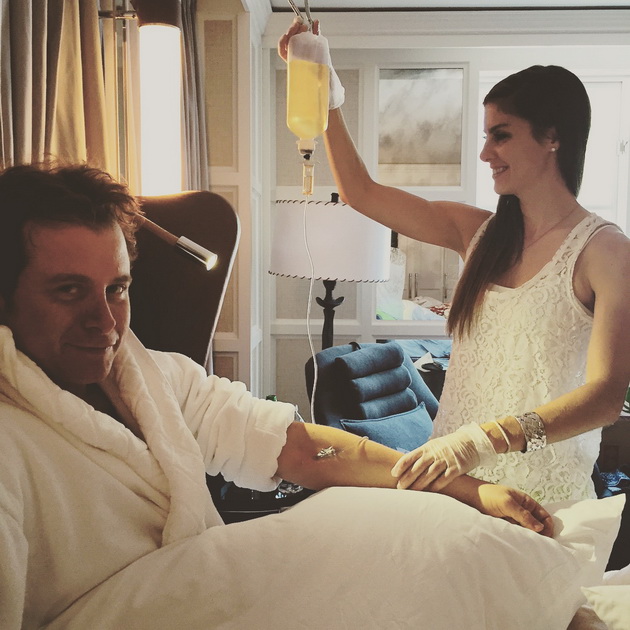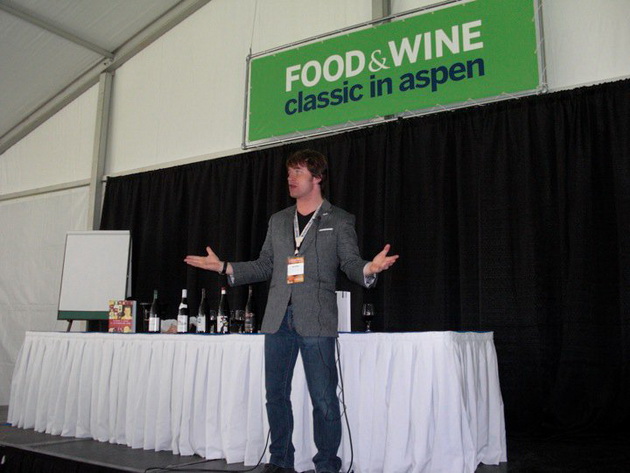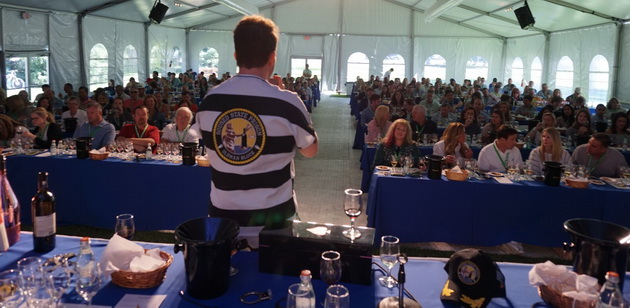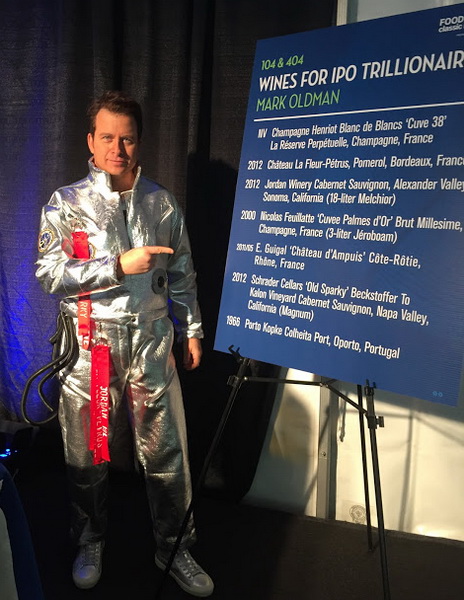What a terrific chat with Mark Oldman author of How to Drink Like a Billionaire!
Click on the arrow above to watch the video.
Listen to Mark’s stories about adventures in the wine world.
Discover more juicy tips that will make you wine smart.
Cheers,
Natalie
P.S. Join us next Sunday, August 6, at 6 pm eastern right here with Ann Sperling, Winemaker Southbrook Vineyards:
Want to know when we go live next Sunday with Ann Sperling?
Click on the Follow and Like buttons on this page to get notified when we go live.
We’ll be simultaneously broadcasting on Facebook Live, YouTube Live Stream and Twitter Live Video via Periscope.
Watch previous episodes of the Sunday Sipper Club (SSC) and find out who’s coming up next.
If you’d like to read the 53 comments for this tasting, or make a comment yourself, visit:
https://www.facebook.com/natdecants/videos/10155313282204845/
Here’s a sampling of our lively discussion from our tasting…
Niagara, Ontario VQA, Canada
Mark Oldman is a wine expert, author, entrepreneur, speaker, and media personality, and, elementally, someone who delights in helping people simplify complex subjects.
In the world of wine, he is known for his singular ability to unravel wine’s complexities with a potent blend of entertainment, style, and humor. Mark’s enduring, award-winning books are considered by many to be best of their kind.
His standing invitations to the country’s top food festivals and consistently sold-out events attest to his position as one of gastronomy’s most captivating speakers.
Named “everybody’s favorite wine expert” by festival guru Lee Brian Schrager and a “hot ticket” by the New York Post, Mark brings the ruckus to audiences at major fairs, corporations, and institutions around the world.
Mark Oldman – Aspen
Santo Assyrtiko 2015
Santorini PDO, Greece
 Mark Oldman How to Drink Like a Billionaire: Mastering Wine with Joie de Vivre
Mark Oldman How to Drink Like a Billionaire: Mastering Wine with Joie de Vivre
Alamos The Wines Of Catena Torrontés 2016
Salta, Argentina
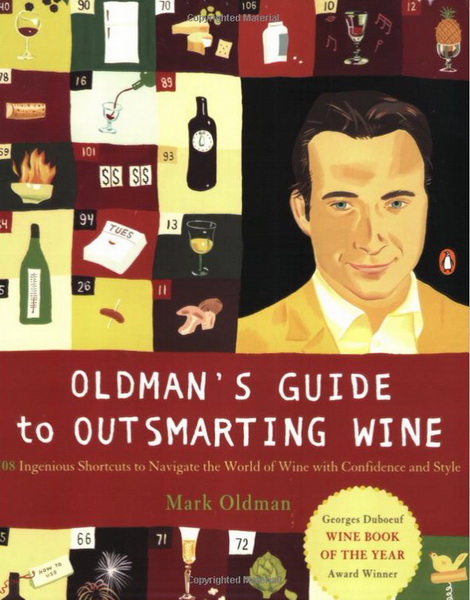 Mark Oldman Oldman’s Guide to Outsmarting Wine
Mark Oldman Oldman’s Guide to Outsmarting Wine
Charles & Charles Cabernet Sauvignon Syrah 2015
Columbia Valley, Washington State, United States
 Mark Oldman Oldman’s Brave New World of Wine: Pleasure Value And Adventure Beyond Wine’s Usual Suspects
Mark Oldman Oldman’s Brave New World of Wine: Pleasure Value And Adventure Beyond Wine’s Usual Suspects
Mark Oldman is a wine expert, author, entrepreneur, speaker, and media personality, and, elementally, someone who delights in helping people simplify complex subjects. In the world of wine, he is known for his singular ability to unravel wine’s complexities with a potent blend of entertainment, style, and humor. Mark’s enduring, award-winning books are considered by many to be best of their kind.
His standing invitations to the country’s top food festivals and consistently sold-out events attest to his position as one of gastronomy’s most captivating speakers. Named “everybody’s favorite wine expert” by festival guru Lee Brian Schrager and a “hot ticket” by the New York Post, Mark brings the ruckus to audiences at major fairs, corporations, and institutions around the world.
Mark Oldman Button-luggage tag–Not 100% Sober
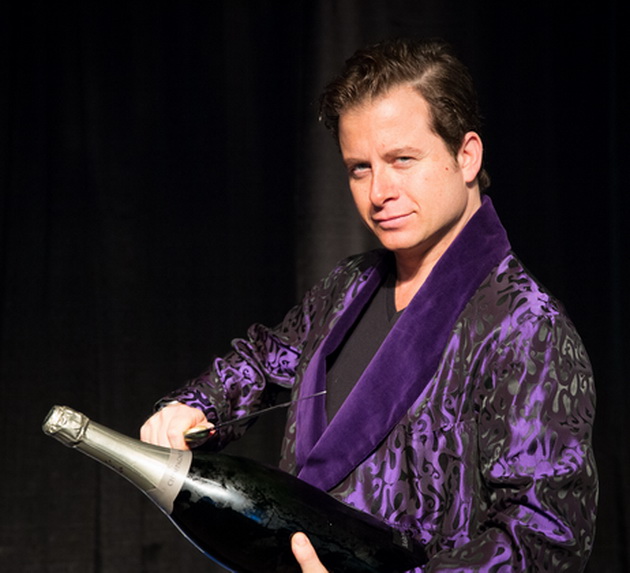
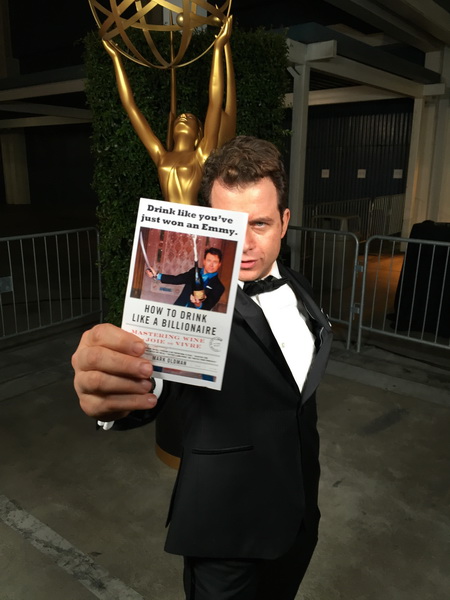
Mark Oldman Just Won Emmy
Before Billionaire, Mark wrote Oldman’s Brave New World of Wine (W.W. Norton), focusing on that holy grail of wine lovers: insider wines of moderate cost and maximum appeal. The Wall Street Journal called Brave New World of Wine “the perfect book for someone who’s just caught the bug, or would like to.” Winner of the Georges Duboeuf Best Wine Book of the Year Award, it was named one of the “Best of Books of the Year” (Apple iTunes), “amazing, hilarious” (Marie Clare), “charismatic and cool” (Publishers Weekly), “wicked funny” (Palm Beach Post), and “a welcome discussion of many little-known wines that have a great deal of pleasure to offer” (New York Times).
Mark’s first book, Oldman’s Guide to Outsmarting Wine (Penguin), was called “perfect” (Wine Enthusiast), “shortcuts to a connoisseur’s confidence” (Business Week), and “the perfect primer—concise, evenhanded, fun, and practical” (The New Yorker). Currently in its tenth printing, it won the Georges Duboeuf Best Wine Book of the Year Award, was a finalist for “Best Wine Book” at the Le Cordon Bleu World Food Media Awards, and is published in Japan, Belgium, and in four volumes in France.
Mark Oldman Wine Sanctuary-Mark In Office
Mark was the lead judge in the PBS television series The Winemakers and was a regular on Martha Stewart’s Sirius Satellite Radiochannel. He has written for an array of culinary and lifestyle media outlets, including Travel & Leisure, Departures, Epicurious.com, Food & Wine, Maxim, and Wine Enthusiast. He was the founding wine columnist for Everyday with Rachael Ray and the wine correspondent for the Food Network.

Mark Oldman -Aspen-speaking
APPEARANCES
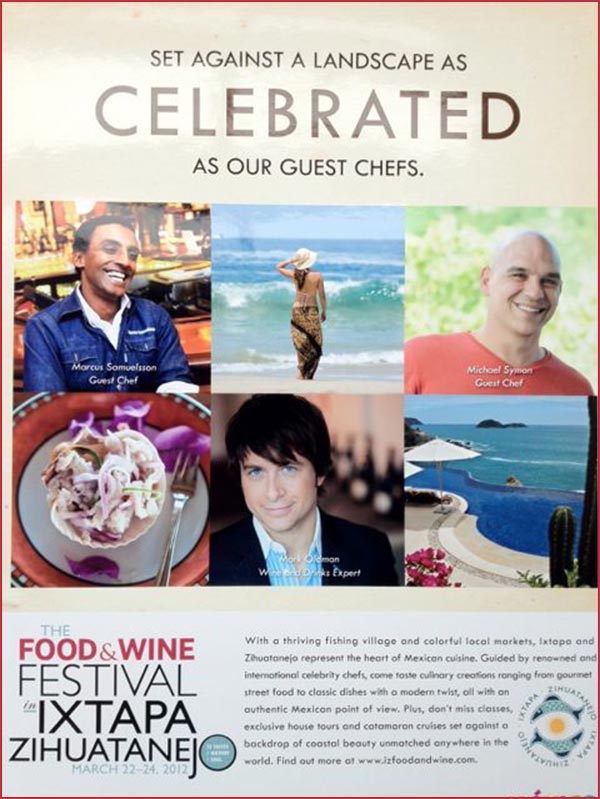
Mark Oldman
Mark regularly speaks to standing-room-only audiences at the country’s A-list gastronomic festivals, including 12-straight years at the unrivalled Aspen Food & Wine Classic. He is a frequent speaker at the Boston Wine Expo, the Austin Food & Wine Festival, Pebble Beach Food & Wine, the Newport Estates Food & Wine Festival, and the Food Network Wine & Food Festivals in New York City and South Beach. He headlined the Food & Wine Festival in Ixtapa-Zihuatanejo, Mexico together with chefs Michael Symon and Marcus Samuelsson.
In addition to his frequent festival appearances, Mark has a lecture schedule that rivals many politicians’, spanning the universe of blue-chip venues such as the Smithsonian Institution, Harvard Business School, 92Y, Estée Lauder Corporation, Credit Suisse, American Express, the Junior League, L.A. Live, Soho House, the Bohemian Club, and the James Beard House. He is also an in-demand spokesperson, wine judge, and emcee, with clients ranging from Pottery Barn and Williams Sonoma to industry trade groups such as Wines of Chile and Rias Baixas Wines to the Susan G Komen Breast Cancer Foundation.
One of gastronomy’s most exciting speakers, Mark hosts events that have been called “the #1 best moment of the Aspen Food & Wine Classic” (Curbed), a “smashing success” (USA Today), “the best seminars of the festival” (Aspen Sojourner) and an “amazing performance: animated, informative, hilarious and crowd-pleasing” (Austin Chronicle).

STYLE
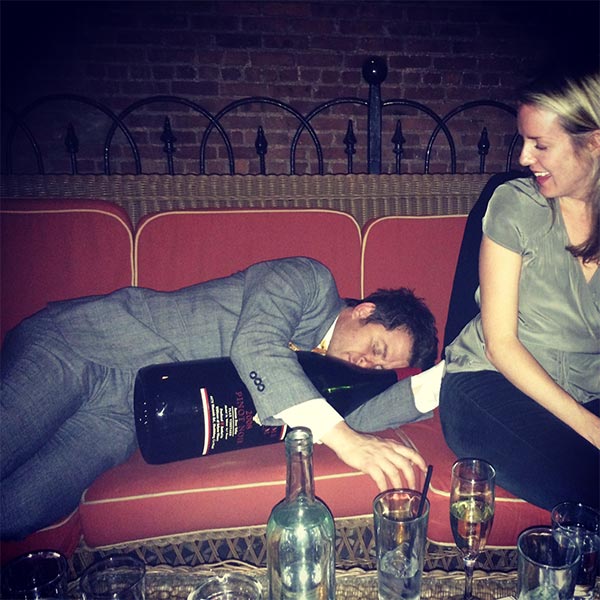
Mark Oldman
Mark’s approach is inventively irreverent and forever aimed at creating memorable experiences. Who else, for example, would pioneer the annual ritual of “B.Y.O.T.” (i.e., “Bring Your On Truffle”) to circumvent the exorbitant truffle pricing in restaurants? And did you know that Mark was hauled into criminal court for an open container summons that he received while carrying an empty bottle of prized Bordeaux? He ended up lampooning the non-crime in a video and even christened a room of his apartment “the Felony Room” in commemoration of the court case. Then there’s the time when Mark had to have spinal surgery and therefore smuggled into the hospital a bottle of the nectarous Château d’Yquem and wet his lips with before going under the knife.
 Mark Oldman Porron-Jacques Pepin Chugging with Filter
Mark Oldman Porron-Jacques Pepin Chugging with Filter
Mark brings his sense of fun to audiences, too. He has offered his seminars a taste of wine from Bernard Madoff’s wine collection (and a card certifying the experience), donned a custom space suit to emphasize wines that were “out of this world,” and served audience members wine from the 1800’s (along with a celebratory pin that said, “I Drink Wine from the 80’s — the 1880’s”. He also created luggage tags based on Ruth Bader Ginsburg ‘s admission that she wasn’t “100% sober” when she fell asleep at a State of the Union meeting.

ENTREPRENEURSHIP
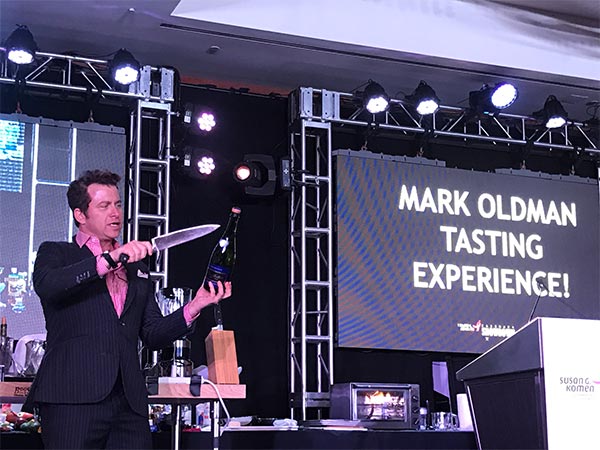
Mark Oldman
In 1997, Mark and his friend Samer Hamadeh founded Vault.com, a career portal that provides job seekers with insider information on corporate culture at Fortune 1000 companies, as well as rankings of companies and firms. They won Crain’s Top Entrepreneur’s Award, the Harvard Business School Club’s Entrepreneur of the Year, and the Silicon Alley 100: The Internet’s 100 Most Influential Executives. He served as president of Vault.com until its sale in 2007 to a private equity firm.
Mark also created and currently teaches an entrepreneurship course, “Ingenious Entrepreneurship,” to Stanford University undergraduates.

BACKGROUND
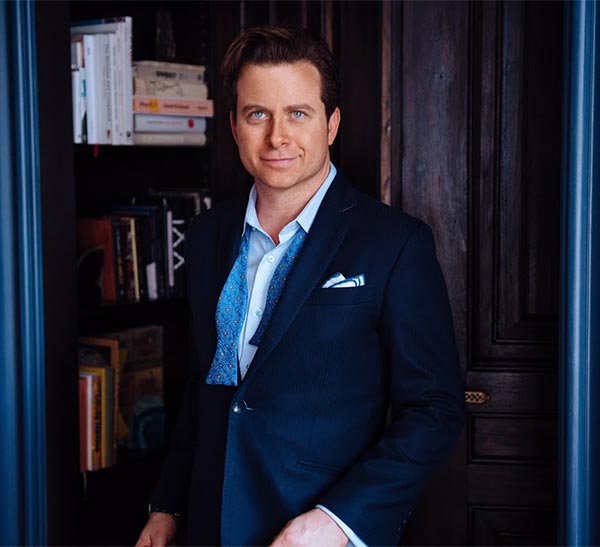
Mark Oldman
Mark began his wine journey in 1990 when as a student he founded the Stanford Wine Circle, a popular university club hosting tastings with California wine legends, earning him the nickname “Bacchus on the Campus” in Wine Spectator magazine. The club currently lives on at Stanford Business School.
Mark graduated Phi Beta Kappa from Stanford University with a B.A. and an M.A., as well as a J.D. from Stanford Law School. Passionate about innovating in the areas of education and entrepreneurship, he has served on five major boards of Stanford, including its top governing body, Stanford’s Board of Trustees. He also served as chairman of the STARS Volunteer Leadership Assembly, the university’s premier volunteer recognition event.
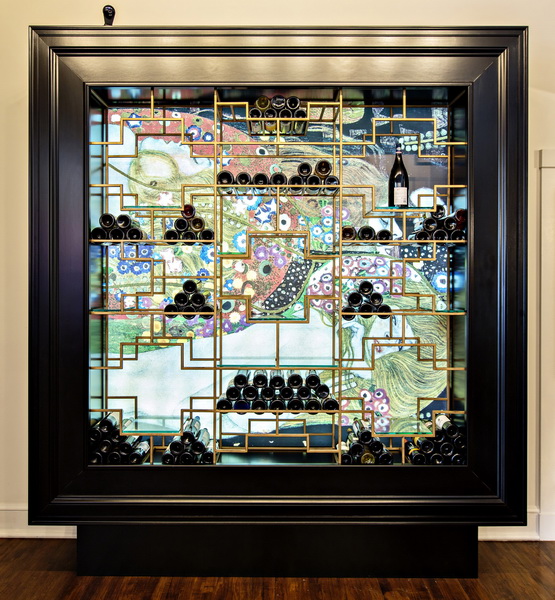
Photo Assignment ID: 31853 Slug: BALANCE SHEET-OLDMAN
Follow Mark on Facebook, Twitter, and Pinterest and check out dozens of free wine videos.
To contact Mark, please click here.
Wine samples may be sent to the following address:
Mark Oldman
101 West 23rd Street, #220
New York, NY 10011-2490
Natalie:
Hi there. I’m Natalie MacLean, editor of Canada’s largest wine review site @nataliemaclean.com. And tonight on the Sunday Sipper Club, you are going to learn how to drink like a billionaire without spending a fortune. Now before I introduce my guest fully, , I want to know, just jump in in the comments below. Have you ever read one of Mark Oldman’s books? I want to know if you’re familiar with him or if he’s new to you tonight. Mark is a really fascinating guy. He, graduated from Stanford law school. He founded the wine club there., then he did a pivot so to speak. , and he has been, , described by the New York times as the wine world’s greatest showman. He has a lot to offer. He’s going to share really good tips tonight. Like how to cultivate a wine, wine spouse. what’s the one overriding factor of great wine and, why restaurant lists are the Bermuda triangle. And he joins me right here, right now. Live from New York City. Welcome Mark Oldman.
Mark:
Thanks so much, Natalie. Great to be here and there too.
Natalie:
Yeah, that’s right. You’re everywhere. when you’re live stream, you’re on Facebook, YouTube, you’re in New York and everywhere. we’re so glad you could join us tonight because I have been going through your book. and I just love all these smart, savvy, snappy chapters. I’m going to ask you to start with, the tip that you gave us before we were just doing our little teaser video. Just for those who missed that. Tell us about kind of a tip on choosing wine in a restaurant that people may not think about when they get there.
Mark:
Right. I think the tip I gave you was, , if you don’t even want to bother, asked the waiter what he or she drinks or, or what the chef drinks when he or she is off duty cause it’s usually something pretty interesting and it’s usually something not that expensive and you don’t have to know anything about wine then. So a lot of people are like that, you know, appreciate.
Natalie:
Absolutely terrific Mark, tell us what your earlier books were. there were two ?
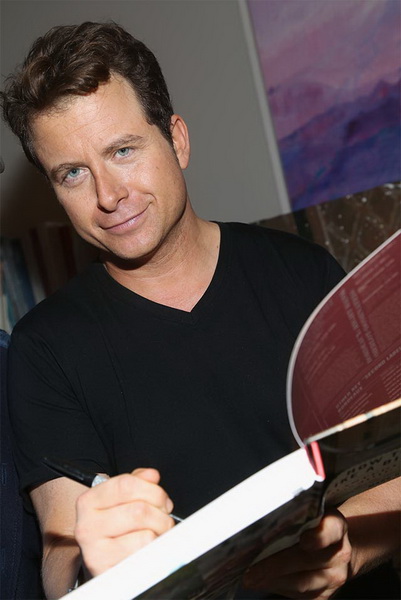
Mark:
The first one was Oldman’s guide to outsmarting wine. my publisher almost cut that word outsmarting out of there. But luckily it was saved you, you know, how it goes with these publishers, Natalie, and then yeah, you’re out of control as the author sometimes. And, and then the other one was, Oldman’s brave new world of wine, which explored some of the, , wine beyond the usual suspects of wine, some little bit out of people’s comfort. So. Absolutely. And back to that restaurant seat again. there was something about glassware as well at a really savvy tip that you shared as well. Another one about glassware and a restaurant.
Mark:
Yeah. Well, if you want to be perceived, it’s amazing how in restaurants certain people get extra good treatment and certain people don’t. I tend to not get very good treatment because no one knows. I’ve written books on wine and I look relatively uninformed and , so I’m usually in that bad camp, but, which means I have great empathy for my mom and my sister and most of my friends who aren’t recognizable to, to the restaurant. And one really cool thing to do, which wine snobs do. And the byproduct of it is it telegraphs that you’re an insider is what wine snobs do is they’ll take an empty glass and smell their empty glass. And why are they doing that, Natalie?
Natalie:
Oh, Oh, it’s quiz time. Because Mark you told me they’re looking for impurities. Right,
Mark:
exactly. They’re looking for detergent.
Natalie:
Yeah, exactly. Exactly. That is so smart. I never knew to do that. I have been out there intimidating ever since. , you told me that earlier this week.

Mark:
It will intimidate the restaurant because like we’ve got a, we’ve got serious, you know, they’re going to have a really bad English accent. Suddenly we’ve got a serious wine snob in the house, this person very well. And, , so, and especially where I am in New York, especially these wine oriented restaurants or the restaurants that are trying to up, , increase their service, improve their service, they will take notes on you. And when you reserve again at the restaurant, the, , we’ve got, we’ve got that insider. Even if you’re the butcher’s third cousin, you’re still in the business and they’re going to treat you extra Royal. So sniff your empty glass and you will Telegraph that you’re in the business even if you’re not
Natalie:
well, I hint of cascade with a, I don’t know, but you’re right, there is also practical side apart from intimidation and so on, which I know you always take that humorous side. , you know, , as we know, detergent can kill the bubbles on champagne, but it also just can ruin the taste or at least, cover up the taste of wine. And you were saying also I think, you know, if people are storing their glasses on, like a wooden shelf, it can, get that kind of smell too. So it’s, a, it’s a really good tip. Mark
Mark:
Yes. Yeah. Well, you know, it’s, we, I BYO to a really great Italian restaurant, a very simple restaurant here in New York called a bill of Moscone. And I’ve been going there with my family, especially my mom and my sister since I got my braces tightened in the 80s. I mean, it’s the same, cheesy oil paintings on the wall. Same amazing food. And, but I mentioned this to my mom and she and my mom know nothing about wine, but she’s like, you know, those glasses they give us really do smell detergent E so, you know, it really is. That’s one of the biggest killers of wine outside of, you know, pork cane. So it really is an important thing to look for.
Natalie:
Absolutely. It’s a great tip. And we’re going to get lots more tips tonight. If you’re just joining us here on the Sunday zipper club, please post in the comments below. Have you ever read one of Mark Oldman’s books? He’s joining me live here from New York, author of how to drink like a billionaire, but not spend a fortune.
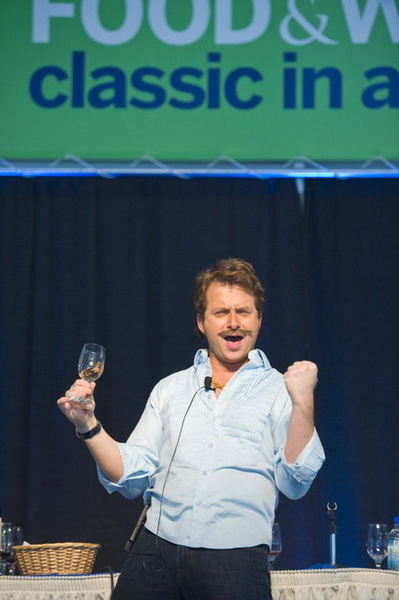
Mark:
Yeah. And, sorry, I’ll say billionaires. And I do know a few. I’m fortunate to know a few. , because when you go to Stanford, you know, the bad side of the tracks, we end up writing about wine. The smart ones end up starting dot-coms and do become billionaires, but it, but you know, the way they stay, billionaires, they don’t want to overspend on wine. So especially for daily drinking, a lot of them, you know, are looking for that great $15 bottle, that great $10 or $20 bottle. So it’s something that we all, you know, Natalie, I’m sure you’re the same way. And I know with all your great reviews, you know, a lot of the wines hover around the 10 and 15 and $20 mark and, and that’s, that’s our golden chalice for, you know, for the wine group.
Natalie:
Absolutely. And I think it’s that, that chase that’s exciting. It’s like, I’ve mentioned this before, but I’ll say it again. It’s like finding a Versace jacket, at a warehouse, an outlet store for 10 you know, 10% of the original costs. It’s the hunt, the thrill of the capture. Something under-priced.
Mark:
Yeah. Yeah. It sends a lot of dopamine to the right-center. And in that, you know, it really makes us excited and so, so, and, and, and it’s fun teaching people, you know, what to look for and, and so forth. And, and some of the wines I know you’ll, you’ll be, drinking tonight. it’s, it’s, you know, there are places to look for those really good values.
Natalie:
Absolutely. Nice segue, Mark. So one of the wines you gave me sort of general parameters, but you suggested I look for an Assyrtiko from Greece does a crisp white wine, but tell me why you chose this wine as one of them, perhaps underpriced gems in the liquor store.
Mark:
Well, I guess one very good rule of thumb is, and it doesn’t always hold true, like everything in wine, there are always exceptions to the rule, but the harder to pronounce often, the better value it is because people are afraid, including me sometimes if I don’t know exactly how to pronounce it. People are afraid of that performance anxiety at the wine list. I mean like unless you like go out of your way and write it out phonetically, chances are you’re, and I’m corrected and these New York restaurants all the time. So what happens is these wines are less in demand because they’re less ordered. You’re not going to pay a familiarity premium for them and they tend to be less marked up. And yeah, I mean like you kind of have to know about it to have the confidence to order it because in these restaurants, I mean, who wants to spend 30 or 40 or 50 or more on a wine that might not pan out because you weren’t familiar with this. So you almost have to have someone tell you, well, . It’s a white wine from Greece. . And it’s, it’s just a great value. The Greeks have really figured out excellent price white wine and it goes so well with their famous seafood too.
Natalie:
Absolutely. This is beautiful. It’s just got that light floral note, but lots of racy acidity for the seafood and everything else. A great choice. Mark. And I’ve posted all of the wines that we’re tasting tonight in the comments section just now so people can find them in their liquor store.
Mark:
I never say anything’s out and if you really want to drink like a billionaire, I have seen true billionaires or metaphorical billionaires, metaphorical billionaires as I know you, Natalie, you had Randall Graham. I say top winemakers are like metaphorical billionaires. They don’t have to get too formal about wine because they’ve seen it all. They’ve done it all. They’re not intimidated. So I’ve seen people like that or actual billionaires drink out of paper cups. I mean, you know, whatever it takes at the moment. If you don’t have beautiful glassware, I mean obviously we want nice glassware thin glass doesn’t have to be expensive, but paper cups, I am not too big for paper cups. I’ll, I’ll take them if I have to.
Natalie:
That’s right. You’ll improvise. But back to the restaurant you are in the restaurant setting and finding good values. Why do you call a restaurant wine list? A Bermuda triangle? I was intrigued by that description.
Mark:
Well, you know, there there are very good, wine oriented restaurants that there and then there are restaurants that somewhat take advantage of the diners and they know our inclinations. They know that we kind of fall back on the same standards, for example. , they’ll know that. , and I’m guilty of this myself, that when I look at a wine list, where to my eyes fall, you know, it goes to the least expensive wine and then I’m afraid of looking like a skin Flint. So then it will come up to the second or third place on the list. And I mean, very good restaurant. We’ll put excellent wine in that position. But restaurant t who want to move a wine or want to Mark up a wine more, we’ll sometimes put it in that second or third seat. And you have to be on guard for that because you know, that might not be the best choice or it might not be the most best value.
Mark:
and so, so you have to treat the wine list and think about what the wine list is. It’s basically just a sales list with foreign names on it. And people, I, I mean, I’m sure you’re like this, Natalie too. When you go to restaurants with people, you get the wine list because everyone’s like, you’re the expert. But honestly, like, especially if it’s like an all Italian list, a lot of those wines I haven’t had before, at least in those specific vintage years, I haven’t had those wines before. And, um, it’s really the restaurant that knows who, which wines are producing the oohs and the AHS. So it’s up to them to communicate or have a Somalia or a waiter who really knows their stuff. Absolutely. And, um, so there are a lot of ’em, especially in New York. One great example is I was just at the nomad hotel.
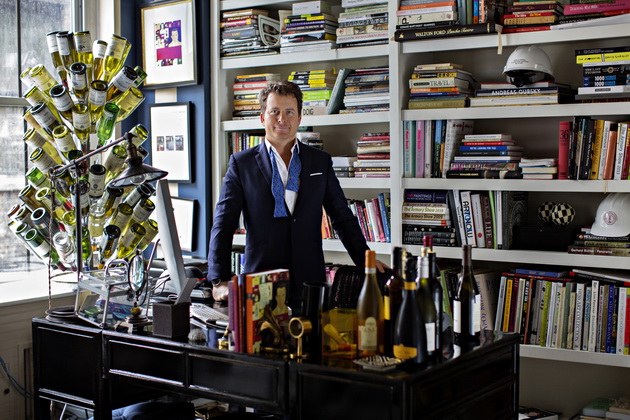
Mark:
I’m having a special dinner. It’s kind of a pricey, cool hip downtown hotel here in New York. And, every wine almost, I mean, I opened it up and it was a Maalox moment immediately cause almost every wine was over $100. And I’m like, Oh no. And then I look at the very, or the, at the least expensive wines. And I saw some Beaujolais, so some, a wine form from more gone, which know is one of the crew, one of the villages of Beaujolais. And I talked to priced at 65, which for this very expensive restaurant was actually really good and almost suspiciously less expensive than the other wines. But because I knew the list had integrity, I knew the restaurant was famous for a good list. I knew it was safe to order the least expensive wine. And I knew like I wouldn’t be perceived as a piker or a skin because I knew it was probably really good. And that’s when I took over and I asked Sommelier came over, I’m like, I’m thinking of these two Beaujolais. And they were both around the same price, which would you prefer? And then I got, so sometimes choosing from the wine list, it’s your instincts, but then you rely on their expertise also if they seem credible.
Natalie:
Sure. I like that. Sort of narrowing it down and then handing the final decision to them because they’ve, as you said, they probably know their list better. They’ve tasted those wines, they know the vintages. That’s a good tip too. Absolutely. , so let me yet, Oh, I’ve got a question here from Paul who says, you write about why, but what got you interested in it? Can you remember the moment that you decided, to write about wine or take us back to your first, you know, the best wine, whichever way you want to tackle this.
Mark:
Well, yeah, I mean, I’ll go with the former, which was in college. Um, I did the overseas program in, um, England and Oxford has a, a somewhat snooty, or at least it was then a team called the Oxford wine tasting team. And um, they actually play Cambridge in like a super bowl of dorky blind tasting rowing competition. Exactly right. Blue. It’s like half blue, you know. So I have a city and I was the ugly American over there and I knew nothing about wine. In fact, I grew up loving Moosehead beer from Canada. One of the reasons why my mom or one of the reasons why I got into wine and I never like abused it is because when I was 16, my very cool mom was like, you know, you pick the beer that will get delivered for the house. Then instead of like picking something really upscale, I picked what I found delicious, which was Moosehead and to this day my mom still likes moose head because I developed that brand loyalty with her early.
Mark:
So anyway, I grew up in New Jersey with, you know, drinking moose head beer. And so I’m doing the overseas program in Oxford. And so this is competitive and it was run by an American and there’s no more snooty Brit than an American who wants to be a Brit. So like, this was the wrong climate. But I got back to California and I’m like, no, I want to start a wine club in California, but it won’t be competitive or be at Stanford and we’ll pay winemakers, people like Randall Graham, you know, top winemakers to come in. And I just was fascinated by wine and I thought, you know, we’re pretty close to Napas Sonoma and Santa Barbara. We’ll get the winemakers and we’ll pay for them to come in. And what I, I took dues originally from, from the group of students and what I didn’t realize is they were chomping at the bit, to have, you know, to market to, college students.
Mark:
We had Robert Mondavi himself, we had Bruce cake bread, we had Janine Dyer, who then was the winemaker with Domaine Chandon. We had Jim Clendenen come up t. And it was like each one, you know, they were like, um, so how many bottles of our $90 mountain-grown Cabernet do you want me to bring? And it was like, so the dues I collected actually went for, we made, I made special wine glasses for everyone and we learned so much. I mean, you can imagine having these people come in when you’re still an undergrad or there are some grad students in there too. So that kind of set me on my way. Learning about why
Natalie:
that’s excellent. Way better than being the yearbook editor. Exactly. A good choice than the Latin club. That’s true. So tell us, you’ve got another tip in there that really intrigued me. How to cultivate a wine spouse. Oh, do take a moment to have a sip there. I’ve kept you talking nonstop. Yeah. I have my own red wine here. Washington state, Washington. Well, let’s just take a moment for there because I, I see your Washington and I raised it. This one. Which Washington, when are you drinking? Drinking? , seven Hills. Okay. And it’s a Cabernet blend. That’s what mine is to a Cabernet Syrah blend,
Mark:
so well, you know, it’s slightly cooler up there and um, you have sometimes smaller wineries and they really care. They really clip the love into their beautiful red blend. So I tell people Syrah or Cabernet or Merlot from Washington state is one of the great sources, especially for sometimes underpriced red wine.
Natalie:
Absolutely. So it’s great point Mark because you know, you can get a course, Napa Cabernet and, Syrah, but from Washington, you’re getting that badge name of a great, but from a region that is not yet overpriced.
Mark:
Exactly. They’re there, they’re still coming up and they, like Avis. I feel like often they try harder for less money, which is again, what we’re looking for and what we’re trying to transmit to people. I think I was supposed to answer a question.
Natalie:
Yes, . Okay. So with, Oh, how to
Mark:
cultivate a wine spouse. Sorry, I jumped right into, as soon as you said Washington, I’m distracted by the deliciousness of this. And this is actually a day old. I had opened this yesterday and I’m just, you know, hanging around the house, her drinking on a Sunday, but I know, so wines fast. , I was inspired by the idea of like workplace romance and how people at work tend to have these platonic, workplace spouses, my, you know, work husband or work wife. And similarly, you can develop that sort of relationship with certain wine stores, mine stores that appear to be on their game and, and how to have below. So I tell people, you know, we’re, the people seem knowledgeable and they seem honest. They’re not trying to upsell you, develop a relationship with the people working at these wine stores because often they’re all puffed up with this great information and people are intimidated who come in about talking about what their needs and their desires are terms of wine.

Mark:
So, feel free to, and if they care and they’re easy to talk to, you know, I might say like with this question in state, if I like this style, I’m looking for a rich red that is velvety and not over $20. And what’s great about these wine stores, the wine merchants that really have the love, they all remember that and they’ll even email you and they’ll text you. Or if you’re going to wine country, they’ll sometimes we’ll even, you know, set up appointments for you. So that ongoing platonic long distance, well not long-distance relationship, a long-range relationship can actually be, um, a wonderful thing. And it’s how a lot of like intermediate wine experts buy their wine and you know, these wine stores are looking to build that relationship because they know the lifetime value of your patronage is really, really valuable to them rather than a wham-bam.
Mark:
Thank you, ma’am. You know you go into the wine star, you never come back. Right. So that sort of, you know, wine stores where it’s a little bit more expensive. And I know it’s a little different in Canada, but in America where it’s a little more expensive, sometimes you’re paying for their expertise or you’re paying for the fact that they’re able to get in some really cool wines you wouldn’t find elsewhere. Absolutely. And it reminds me of that old saying, you can give someone a haircut multiple times, but you can only scalp them once. So you know that idea of returning. But it also reminds me of the way we cultivate a relationship with a hairdresser or hairstylist. Most of us don’t go to a different hairstylist every time. You might over time switch, but they get to know you and your hair texture and what you want.
Mark:
So I think it makes total sense to cultivate that relationship with somebody, a staffer who really knows wines in the liquor store who gets to know you and your taste and your budget and totally, yeah. You know what? You just reminded me of Natalie too. Two things. One is I hope my hair cutters not watching because I’ve tried to diversify beyond him. I feel like, you know, I’ve escaped. He’s not a serial killer, but you know like you always hear about like, yeah, exactly. Or if someone’s gotten to the lawn as they’d gotten out of the house, they’ve gotten a lump, they get pulled back in the like. So I haven’t been quite able to diversify, which is always good. I remember in the early nineties in New York, I went to some random air cutting place. The guy really wanted to tell me jokes and he wasn’t using the Clippers. He was just like, you’re doing, eh. I’m like, you’re not going to give me a crew cut. Right? And it’s like, no, no, no, no, it’s fine. And I actually had longer hair look terrible. But, but he’s in the middle of telling me a joke and he basically gave me a crew cut, but they here going along this way and I go, do you know what you just did? And all that. He goes free haircut, free haircut.
Mark:
But like, that didn’t really make up for the fact that I looked like, you know, the woman who from a bow, if you remember the I won candy video, well there must be a wine equivalent to that bourgeois layer. Or actually you suggested a guy from Canada right along here. Again, a that was a real insider tip and kudos to you being in New York city and recognizing that, Canada rocks, especially cool climate. Gabay. Tell us why. , well, you know, it’s just, there are a lot of small wineries and I know that Niagara, um, it’s a specialty there. you know, a lot of people will say, or the really knowledgeable will say it’s the best began may outside of, the actual Beaujolais region of France. you know, Beaujolais is light, you know, it’s a red that is, is light to medium-bodied and very floral and very easy to drink, very low tannins, not a lot of tannic bitterness.
Mark:
And I was up there doing the Toronto food and wine festival and I had a number of great, local guy may, a lot of it doesn’t get down to America, but I was so impressed with the quality and I, you know, a lot of these were small wineries I hadn’t heard of before. And it’s just, you know, and damn a, I call it like a pivot wine. It pivots between the world of food we’d associate with white wines and food we associate with red wine. So it’s kind of in the middle of the spectrum. So it goes with everything and often has juice, the acidity. Tell me about your Gammy air. Well, I’m loving it because it’s plush
Natalie:
and round. , the difference I find with this Niagara, a Gamay is it’s, it’s not to be mistaken for Beaujolais nouveau Gamay. Of course, Beaujolais makes Gamay that are longer lived as well, aside from the nouveau style. But this one is just so juicy. So like a satin pillow plush. I want grilled chicken or plank salmon or something, but it’s just, it’s, it’s savory to it’s, and it’s medium-bodied. It doesn’t knock you over the head. It’s got low alcohol. It’s about 12% to me, it’s a heatless dream. So
Mark:
it’s really beautiful. And you’re drinking local, which is so great. Let me just say, I’ve only, I’ve been to Canada maybe, I don’t know, 10 to 12 times in my life, but I, I have deputized myself a, an unofficial Canadian because I feel like Canadians, obviously, they’re well known for being plagued. They have great senses of humor like you and who else? I mean, we have Dan Akroyd who I think I saw some of your, a show where you mentioned that he has a winery and I interviewed him once and he was the sweetest, coolest, funniest guy. Um, and there’s just a Canadians don’t take themselves too seriously and I love that because like you, you can be a total expert but not Lord it over others. And that’s like the perfect combination of things.
Natalie:
Thank you, Mark. You’ve got that in spades. And we’re saying, okay, so if it’s not a good glass and there’s a detergent, I mean, do you keep sending backglasses or do you just, uh, if you’re in that kind of establishment, they’re not trading, how many times can you send back a bad glass?
Mark:
Well, bill and Moscone back to Villa Moscone we will now if we smelled the detergent, we’ll just get out of the glass. Smells a little bit funny not to be imperious about it. You know, it’s almost like sending back a wine that is suffering from cork taint. You know what I do sometimes with that, and that’s a delicate thing, especially for me. And I imagine for you too, because my non-wine pro friends, if they see I ever problem with there, I think they secretly go, okay, is he going to be a bit douchey about, let’s see how he handles it. So it’s, it, it’s how I handle why I’m in court Tang. I give them ownership over it. I say, you know, um, this class smells a little bit funny. , could you check it out? And sometimes they won’t even smell the beer, you know, they’ll, they’ll whisk away or if it’s suffering from cork taint, it has that mildewing mold, moldy smell. I’ll say, you know, this, I think this might be off a little bit. Would you mind smelling the wine or having the small yea or the bartender smell the wine and that way you’re not like emperor Nero, you know, down, take it away. You know, it’s not like that. You’re, you’re more collaborative and you’re, you’re showing that you come in peace, that you’re not there to make their life horrible. But you do want to correct the situation. So there’s a, there’s diplomacy to it.
Natalie:
It’s a great approach, Mark and, and it, that is what I use as well. Cause I mean I, I am fairly confident of wine faults now, but sometimes I’m wondering is this just a style I don’t like? So I will do that. I’ll say, is it, is it just me or is there something a bit off with this one? What do you think? You know, I handed over and see what
Mark:
it’s so true. And sometimes the cork taint is not fully there, but it’s a little bit, it’s like a spectrum. Yeah, yeah, yeah. So it’s like, you know, people expect, wine pros to immediately know, but I think it’s stress-relieving for casual drinkers to know that even, we don’t know for sure. Sometimes you got to get a second or third opinion.
Natalie:
Yeah, absolutely. P
Mark:
Oh yeah. Fantastic. Kermit Lynch. You know, one of the amazing things is sometimes I’ll order wine in a restaurant that I won’t know that much about, but I’ll take a chance on it and then I’ll turn the bottle around and I’ll see Kermit Lynch on the back. I’ve also read his book, adventures on wine on the wine trail. And some other ones too. So this guy really has the love and really chooses well.
Natalie:
Absolutely. And for folks who, who aren’t as familiar, he’s an importer based in Berkeley, California, very famous. I think he’s inspired a lot of wine writers just because he was one of the first to really dig down literally and figuratively into the earth, visit the wine wines on the back roads in the lesser-known Naples and then bring them back. And as you say, , in America, especially when his name is on the bottle as the importer, you can often try or you can always trust that wine that he has vetted it personally himself.
Mark:
Yeah, yeah. He’s got a lot wrapped up in it. He’s not just making a buck. And that really differentiates the great importers from the not so great ones, but that back labels sometimes the back label tells you more than the front label because the back label tells you who imported it and they’re almost like think of like, persnickety like parent who’s like, you know, there used to be a commercial like for fruit of the loom for like, you know, it showed this like persnickety older mom type and it was like inspected by number 26. And it was like if it passes for, you know, it’s good quality and these great importers are like that sort of filter. So just they’re putting their name on it, you know, chances are it’s going to be very high quality. Absolutely. It’s like a curation. Yeah. Well respected museum, like a collection. Really. Exactly. Good analogy. Ready to drink.
Mark:
I love that too. Your book actually, they have all these snappy little titles and a snackable size, but, and that’s not to yes, no, no. It’s not to minimize the intelligence here. It’s just so eminently readable. Uh, tell me about why Oak can be deliciously slutty. See now that I think slipped through. I think if, you know, in these days of publishing, they don’t edit as much as they used to. And I think that the word slutty, which I am glad in this like world of political correctness, people haven’t taken that the wrong way, but I meant that in that, um, sometimes you know, people aren’t that into Chardonnay and other very oaky wines because they see a lot of Oak in the fermentation or in the aging. Um, but you know, it’s kind of like, listen to, I cut my teeth on California wine. As I love, I’m an earthy Beaujolais or let’s say a red burgundy and I love high acid wines.
Mark:
But you know, there are times I love very oaky wines. I mean, and to California’s defense, a lot of winemakers have pulled back on the Oak. I just had a great Chardonnay from, let me think what the producer, Oh, it’s a Berenger Chardonnay and it was only a touch of Oak and they used to in the nineties make a Chardonnay, much, much oakier. But even when it’s oaky, you know, like, I like it sometimes when it’s high alcohol and oaky like it’s, it’s slutty in a like kinda hot way. Like now you wouldn’t lie an ISE it, you wouldn’t like hold it out as the Supreme example. But you know, the people who say wine should just be one specific way or kind of Killjoys. Back to your analogy about art, you know, it’s like I would never in a million years tell people what kind of art they want to enjoy. And sometimes I like really high-minded art and sometimes I like down and dirty near obscene art. And you know, like people, you know, no one, no expert should, you know, I mean, maybe they have their reputations to develop, but you know, it’s a very personal thing. Matters of taste and subjective. And it depends on, you know, what your mood is and what you ate that day in terms of wine. And it’s fine to like many different styles of why.
Natalie:
Yeah, absolutely. It reminds me of also a beach reading. Like, you know, you can have the thrillers or the completely
Mark:
Yeah. Then, the real Housewives equivalent of wine sometimes, you know. Sure. Pleasure down and dirty. Now there are wines that are made terribly and that don’t taste very good, but I’m talking about the ones that are actually made well, but in a style that maybe the cool kids aren’t liking as much right now.
Natalie:
That’s true. That’s true.
Mark:
if they have it at my beloved Villa. Mosconi, they either have like the little thimble size ones they use for their own wine or biggest they I’ve shared my wine with them. And that’s a great thing to do when you Yo’s shared you share your wine because that’s probably the quickest way to become a regular without having to spend a lot of money. Just share your wine. But they only have one other type of glass and it’s a large bold glass. I don’t get too precise when it comes to, you know, the exact shape of, glasses. I know some people swear by it. I like my glasses to be thin so you’re not drinking glass. And I like it to be inexpensive because I break glasses all the time. And um, I like it to be at least 20 ounces so I only have to pull it up halfway and I’m not splashing out of the glass. So like for example, this, I think this, I might’ve gotten it a crate and barrel on sale, but this is about 20 ounces. And, I would fill it up to about that level unless we weren’t on camera. And then I’d fill it up.
Natalie:
But you don’t need the big goblets where you can get a facial.
Mark:
Those are a little clumsy. Although chalice, you know, maybe for dramatic effect, the
Natalie:
pageant tree, which you’re very good at. I hear I’ve read all kinds of reviews. I would love to see you speak in person, but you’ve been at Aspen, some of the top wine and food shows and your reviews are amazing. What is it about
Mark:
speaking that you enjoy? You know, that came, thank you for saying so and really I feel like, and I, I feel like when I’ve read your books and I’ve seen your videos, you have the same impulse in that if someone’s going to bother you, someone’s going to give you their attention. You really have to make it worth their while. And I’m a tough audience when it comes to, you know, relive in an ADB world where it’s TV and videos and Instagram. And so if someone’s actually taking time to give you their attention, you better not just have the best information. You better make it fun. And, um, you know what I, what, what, why I find, um, my style, why I think it might be effective is because a, I don’t take myself too seriously and be, I spend a lot of time thinking about the best teaching methods for people.
Mark:
In other words, things that can be communicated in a sentence. I try to do it and not spend eight pages because I know people are busy and I don’t know, I went to law school, as you said, I never practiced. Um, I talked to many of my friends unhappy and leaving the law like five or 10 years later. So I just never, practice. Although I did teach wine in, at law school, which, which was a lot of fun. But, um, a lot of the professors in law school, a lot of the subjects weren’t that hard, but they would dress it up and complication and they would do what’s called hiding the ball. And I remember the most, um, fun class or potentially punk class, was criminal law. And we had this professor who spoke in paragraphs. He was too smart for his own good.
Mark:
And you never learned any criminal law. You learn to like what intent meant and all these like philosophical things that only the most intellectual person even cared about and it sucked all the fun out of what should have been a very fun thing to study. Criminal law wasn’t anything like what you see on TV or reality shows or they took all the color out of it. So with wine, there’s a tendency for people to lose the forest through the trees for people to get so into the micro-detail that you forget what other people really want to learn and that they also want to be entertained. They want cool analogies. Your last book, I marveled when I was reading and I was just, just the title red wine and drunk all over have to title, but most wine people wouldn’t have the confidence to name a book that people, casual drinkers loved that. So it’s a real balance. You don’t want to be too frivolous. I remember 15 years ago they were like wine reviews, you know, they’d say, Oh, it’s like, you know, Sophia Lauren on a beach with a sunset. What does that mean? You know, so you really want to use transparent language, but to be fun and to be colorful, that just helps people learn.
Natalie:
Absolutely. That is, amen. That’s the perfect calibration between, yeah, not being too obscure and just talking to yourself and, and simplifying like, I’m, you know, already remembering your chapters like restaurant list, the Bermuda triangle. I’ll remember two, three up, you know, it just this wine spouse I’ll re and people will remember that go into a wine store, a longterm relationship could continuity of care knowing it. Like it’s just, it’s, it’s um, it’s memorable. It’s, it’s how we learn to like, especially, you know, you went through law school, so you would condense down or develop acronyms or whatever. Like one of the ones that I remember, um, I think it was from a pairing book was if you squeeze a lemon on it, go with a high acid wine. If you would slather butter, then go with your buttery Chardonnay or whatever. Like just those little things. Yeah.
Mark:
And, and, and related to what you just said, you know, wine professionals, wine writers have come up with really good analogies. And another one that I just thought of yesterday was, um, if you like espresso, if you like beverages with some bitterness, maybe you’ll like more tannic wines or wines with a little bit more bitterness. And I was eating out. Have you ever had Vegemite from Australia? No. I’ve avoided it all my life. Most people at I act like it, but it took a while real like, it, it’s, it’s bitter and um, it tastes like it’s supposed to be good for you. So that’s another problem there is with it. But, um, it’s that bitterness. I was like, you know, I was talking to a friend of mine who’s Australian and I’m like, you know, the Vegemite people, if they want to move beyond Australians, they should market themselves.
Mark:
It’s like, you know, if you’d like espresso to try Vegemite or if you like, you know, a bitter Barolo, maybe you’ll like Vegemite because it’s the same subway line in terms of bitterness. It’s the same kind of taste bud, uh, spectrum. Um, but, um, I don’t think the Australian really needs to market there, the Ozzies probably don’t need to market their Vegemite but it, but it made me think of like, you know if you like whole milk, that’s the creaming on bitter, you know, the buttery Chardonnay. But we’re S you can tolerate a really tight Sancerre with a lot of acidities. You know, maybe you’d also like espresso, maybe you also like Italian reds, you know, so there are certain similarities across the lemons, the metaphorical lemon squeeze you’re talking about. Sure,
Natalie:
absolutely. And it’s bringing to mind things that Tim, says in California about, you know, our taste receptors and that sort of thing. But also just Amazon’s basic algorithm. If you like this, maybe you’ll like that. And people are just looking for that.
Mark:
They really are. And I’m looking for it in every realm in music and art, you know, and TV shows. It’s really useful. Pandora, you know, and it doesn’t always have work. You know, like I’ll use Pandora and I’ll say, you know, if you create a radio station for X, you’ll like Y. Sometimes they’re huge misfires on it, but sometimes it’s quite brilliant. So it’s just, it’s more to expand your, your, I mean, it’s such an open season now on all types of media and on all wines now. You know, it’s such a brave new world of wine out there.
Natalie:
It is. Well said. And it’s just a jumping-off point. So I’m going to go back as the comments are scrolling, I’m Douglas tr Paso says, have you, have you found, some more obscure wines that you’ve written about in your earlier books have become more mainstream? So the books that you first highlighted, are they more mainstream now?
Mark:
Amazing point. I mean, it’s so true because I’m almost afraid. Like I want to tell my first publisher, can I revise some of this? Because like I think it was, um, is your second one, what a segue. Toronto’s
Natalie:
Oh, Toronto says yes, absolutely. I’ve got a, from Catana Alamos nice and floral, beautiful from Argentina.
Mark:
Right? And it’s a white wine that has become more well known. It’s still not prime time yet. You know, it’s like not ready for prime time versus prime time. But I wrote about that a bit in the first book and yeah, it smells floral but it, but it tastes totally dry. And also from Argentina, when I wrote the first book, Malbeck was almost prime time, but it wasn’t quite prime time. The big rich, luscious wine from Argentina. But Malbeck now, you know, it really isn’t, um, news to most people. I mean, how I tell is like my mom and my like non unwind geeky friends, which are most of my friends, um, they know to order malbec and so, you know, it’s kind of hit prime time when it, so, yeah, you really, and I think generally speaking, compared to my first wine book came out, I think it was, Oh for, people, in general, have just become much more sophisticated by mine, thanks to people like Natalie and, you know, just expanding people’s palette.
Mark:
And I think especially you’re finding the millennials and generation X and so forth become more generous, more adventurous when it comes and you see it in restaurants, you see it how wine lists are divided and you see, you know, more of these binary agents. I mean, even the Canary Islands, you know, has some pretty good wine out there. So you’re finding, you know, the level has risen, the level of knowledge has risen among everybody. So, you know, to tell them, Hey, I’ve got this great wine called Malbeck, you know, it’s not really a surprise anymore. So you really do have to kind of know. You have to put your finger and know which way the wind is blowing, so to speak, and, and, and kind of get a sense for what is beyond the comfort zone and what’s actually in the center of the comfort zone. Yeah,
Natalie:
absolutely. And the four wines that you recommended, which I’ve posted in the comments below, are all, all fit. That category under undiscovered or underpriced gems. I think they’re really smart choices, Mark. Um, and by the way, folks, if you’re just joining us right now, you’re here with us on the Sunday Sipper club with Mark Oldman, author of how to drink like a billionaire without paying a fortune. I keep adding that second tagline, but I know that’s what you mean Mark. I think the spirit of it at least,
Mark:
and I’m glad you add that tagline because they’re in this world of the, you know, we’re Donald Trump is president and billionaires can be vilified sometimes. There are some bad billionaires out there. Not all of them are benevolent. Not all of them are like bill Gates. Um, but, but you know, uh, people there were, there was a minority of people say drink like a billionaire. You’re, you know, I don’t want to drink like a billionaire. And that is really, it was implied in the title. Most people get it, but some people think it’s literally yes. So. Right, right. Exactly.
Natalie:
Yeah.
Mark:
Say billionaire wants to share his wine with me. I will definitely drink as a billion or two.
Natalie:
That’s very flexible of you. Yeah. Yup. Oh, I’ll choke it down. Steven. Andrew says Mark must be a supertaster according to Tim. Had I had an eye, are you a supertaster? Do you know Mark, have you been measuring? Oh no,
Mark:
I, I , and by the way, Tim hen I is a great guy and when I ran the Stanford wine circle, um, in 89 and 90 and in 91, it actually, I started it then it lives on, um, at the business school, but he was one of the speakers who came in and his style of being informal but eminently knowledgeable and doing a food and wine pairing demonstrations, um, with lemon and sugar and sweet wine and dry wine was absolutely brilliant. But terms of supertasters, you know, I don’t, I think communicating about why I think most people are good enough tasters and I feel like I’m a good enough taster, but I don’t lay claim to, you know, a David Lee Roth I mentioned in my book, now I’m, I’m taking a little left turn, but it’s fine. He, when he was fronting van Halen the first time around, he said he got paternity insurance.
Mark:
And in case he, um, let’s just say, spread his wealth around too much and someone got pregnant and he probably didn’t need it, but it created the mythology that if he needs paternity insurance, he must be pretty prolific in the romance department. And I think similarly, there are certain wine experts out there who, you know, they’re like, I’m a supertaster and, and, and you know, you can’t verify that. So I think it does create kind of the mythos and there are supertasters out there drunk, don’t get me wrong, people with incredible taste buds and skills and so forth. I think most people kind of vary somewhere between pretty good and, you know, not terrible. And I, I find myself in that range now. What I think I do have some, um, aptitude at is communicating super communicator for sure, putting at it and trying to, the pedagogical side, trying to figure out what’s gonna put the light bulb over people’s heads. But in terms of like, you know, blind tasting, you know, it’s a great parlor game and, but, and I think I’m pretty good at it, but I don’t think I’m better than most people at it.
Natalie:
Yeah. I think that it’s just such an intimidation factor, like the blunt, unless you’re all in it for the jovial kind of setting. Blind tasting is one of the worst things that can happen, I think to wine. It’s just a personal opinion. I was just thinking it’s like, Oh, watch while I fare it out. The farmer’s daughter was 17 and,
Mark:
well, and let me tell you, one of my wine mentors, um, is one of the greatest collectors, of wine. , he’s the intersection of his great capacity in terms of money, but he also has great generosity and he likes sharing his wine with a lot of people. And that, um, Venn diagram overlap is hard to find. But he taught me a long time ago when I met him and me, I would drink some of his minds. Um, he doesn’t pontificate about wine. He doesn’t go on and on like, like you said, smelling, you know, 12 things in it and talking about it and biasing people. He kinda, it’s, he’s taught me a lot, he kind of sits back and he watches people’s reactions and he learns from them, but he doesn’t impose his own tastes on other people. And so while I definitely get beetroot and tomato leaves and this, and it’s funny, some of my friends here in New York who becomes like finance guys, like wall street types, they sometimes turn into that guy, the insufferable BOR, you know, like pontificating and blah blah blah. And then if they’re lucky, I watched them come off of that pompous, you know, great Poupon pedestal there. And then they’re a little less Ty radical about wine. But you know, when people, what do they say when you get a little bit of information, that’s when you get really dangerous. But some of these like, you know, people like Randall Graham or Tim hanai or you, there’s a lot of people in the wine business who are like, they have nothing approved so they don’t have to like talk in riddles.
Natalie:
That’s true. Oh, that’s good. Good. Very good. Write that down for your next book. I like the way you explain it though. Really seriously. I mean Mark Twain said something like, um, I was going to write you a short letter but I didn’t have time
Mark:
exactly. Oh, I just got chills on the back of my neck. It’s harder to write with brevity and concision and separately it takes, people don’t realize that people will, like, as you rightly said, you use the word, um, a snackable about my book and like, even like people who don’t know the horror it is to write will say, Oh, well, you know, you’re not right. Like it’s so easy to read or, or you’re only writing a page on each subject. I’m like, yeah, but like I started, you know, in my mind where like eight pages and you have to like think about what is absolutely necessary for people to know and take away everything.
Natalie:
Kill your darlings. Hemingway, condense like it’s, it’s, it’s harder. And you know, when I see reviews that say breezy or EAD, uh, easy to read, snackable, those are the highest compliments. People think, Oh, it can’t be that serious. Or that’s an intellectual lightweight actually that’s taking the art form to the highest level. If you can reach people and get them to actually read it
Mark:
and you’re locking yourself, at least I am. And I’m sure when you’ve written your books too like you’re locking yourself in a basement like twice as long as you need to while writing it to make it breezy and make it snackable. I mean like academics, like back to these law professors, they talk or they write in riddles because you know, you can just bang that out. But, but you, it’s like you have, I feel like when you have the audience in mind or the reader in mind, like when you empathize with the audience, that’s when you’re showing them the greatest respect. You’re like, I’m going to make it so easy to read because I don’t want to bore you. I want to keep your attention. I want to give you the, if you will, a flat mignon, the the the really good stuff. And not the fact that as you know, it takes time. It takes, like when I finished this book, I think I told someone, you know, I spent four times the amount of time I needed to in this book. Like if I just wanted to bang it out, I would have taken a diff, a completely different approach. But it’s hard when you also view yourself as a consumer of information and you’re a hard audience. So you’re like, I’m not going to impose something. I wouldn’t want to read myself. I’m not gonna impose that on someone else.
Natalie:
Absolutely. Whoa, this is great. I love this. Douglas says I hope you’re coming to Chicago soon for a tasting Mark. Mark,
Mark:
Yeah, a great documentary on Netflix about him right now called sour grapes. He’s in prison for 10 years. He apparently he did a half a billion dollars worth of damage to the fund wine business for auction raid wines. And my friend had purchased, and by the way, a lot of people who buy fake stuff and who get snookered, uh, would never admit it. But this guy is so confident and so, but, and yet so low key and such a generous spirit that he not only totally admitted it, but last week we actually opened some of these Rudy bottles and to show you that even a collector like him who’s tasted, I mean, he will have wine that now if we’re you to sell, it would be $10,000 a bottle. I mean, we’re talking the world’s most collectible wine. And you think that a collector like that would be able to tell a fake from not, but the first one we opened, we were marveling that it actually tasted pretty good, but he knew it was a fake. And, and it’s great to be around people like that. It puts even me at ease and I think you and I have a mission to put the casual drinker at ease that like even we don’t have all the answers and we can be duped and you know, we’re going to try our best, but they’re, you know, the age of the monolithic all-knowing wine critic is kind of past.
Natalie:
Yeah, I think so. And for better or worse, uh, with so many voices out there, and we were talking a little bit about this before we started broadcasting, but there are so many blogs and so much on social media and all of that is goodness in that, you know, a lot more people are feeling the confidence to express their opinions. But it also means that being that one goes to, as you say, a monolithic voice on high, it’s just, there’s too much noise for that these days. And people go with what they trust, whether it’s a friend who has a good palate or you know, someone they happen to identify with who makes them feel comfortable about wine, like as you do.
Mark:
Exactly. And, and, and, and I feel lucky being able to taste some of these priceless minds because what I’m buying are the 15 and the $20 wines, the equivalent, but you kind of see behind the curtain and some of these wildly expensive wines, it’s really fun to taste them, but you realize that you’re not tasting them so much for the deliciousness, although some of them are mighty delicious, it’s more just the Mo wine. One of the great things about wine is it can just be there to Mark amazing moments in life. And that’s why, that’s how I justified spending overspending, uncertain wines. Because in a way, it’s like a talisman or an elixir. It’s a way for you and me, you know, we were around a table to really Mark a moment, but for those who think, you know, like the [inaudible], you just tasted a wine, that’s $1,000. Can you taste that? And I’ll be like, no, you, you really can’t. It’s more just you’re tasting something that’s usually very, very rare, but it’s not so much the inherent flavor of it, but a lot of casual drinkers don’t, don’t realize that.
Natalie:
Hmm. Yeah. Well said.
Mark:
maybe last year. Yeah. Oh, and he, I did, I saw a promo on it.
Natalie:
Absolutely. Yes. Mark, Oh my goodness. It’s like, I can’t believe I have lost track of the time. You have been generous with your time, it’s seven o’clock. before we wrap up our interview, is there anything that we haven’t covered that you’d like to,
Mark:
well, one thing you had asked me before about one of, my greatest wine moments. Yes, please. And I can tell, tell you about it. It’s more a story, but if it’s entertaining for your audience. Okay, cool. , it’s actually an incredible story and I have the transcript approve it. I’ll, I’ll, I’ll tantalize you with that. Okay. , okay. So I’m at a bachelor party dinner with a friend who works in banking and has too much money and this was about four years ago and we’re sitting around the table and these are like older wines and these are kind of like these special bottles and one had a gold and black label and I thought it’d be really cool. And you know, like when you take home an empty bottle, you know, it’s like a souvenir. I’m in the wine world. It can be called a dead soldier.
Mark:
Like, you know, it’s like, it’s done, it’s time, you know, it’s done, it’s battle. And then it, it sits like a trophy on yourself. So it’s fun to take home a judge, a dead soldier, souvenir empty bottle. So I take the bottle and I actually, I don’t normally, but I, I’m wearing my Sunday best for you, Natalie. I have a suit on and there are eight of us and we get out into 10th Avenue restaurant no longer exist, And it was Saturday night, New York, 11:00 PM and I get out into the, um, 10th Avenue and I hear and I look over and it’s a squad car and New York police department, a squad car. And of course, my brand is the good friends that they are scattered like dust and they have a spotlight on me.
Mark:
And again, if I’m making this like I can’t make this up because all it’s going to go to a place where there is a transcript. So they’re over the side. So I go over this side and they go, okay, what’s in, what’s in the bottle? And, when wine is older, so you know, after about 10 years, some of the color pigments dissolve out a sediment, basically, gook, clumpy stuff and in the Y and you can’t drink that little inch or two of the wine. So the cops are like, so what’s in the bottle? I’m like, nothing. . I’m taking home. And they’re like, let’s see it. So I, I, you know, and I’m on foot, they’re in their car and they’re told, well, it’s not empty, there’s something in it. And I’m like, well, those are colored pigment, forget it.
Mark:
So they, Oh, they write me up for a mandatory criminal court appearance. Open container violation. Is it against where you are to carry alcohol? I haven’t tried it yet. That’s your homework for tonight. If you wind up in the slammer, I’ll, , I’ll, I’ll take care of Canada and come bail you out. Excellent. But, um, basically, um, one of my friends came back and, um, they said to the police officer, you know, he writes about why and the police for actually the NYPD they were pretty cool and they knew they had made a mistake and them, he gets it when it gets out of the squad car. Like, this is what you have to do, just plead guilty. It’s a $35 fine. you have to go down to the courthouse and just plead guilty and everything, you know, it won’t go on, on your record.
Mark:
So I, they gave me the bottle back and I grabbed it and I’ve met up with the rest of the friends and me kind of felt, but yeah. And it just felt fun that night. Like I felt like I was a criminal, like, look, look, look, I’m going to criminal court for this old 1970 Bordeaux. and I’m like, you know what? I’m not gonna plead guilty, not guilty. And for everyone who wants to take home a souvenir empty bottle of wine, I’m going to fight for their rights. I’m going to fight for my rights adventure. So it takes about four months for this. When you plead not guilty for it to wind its way through the court system. And I mean this, I’m assuming you haven’t been there Natalie, but like this is crazy, it’s like night court and it’s full of people who drunk driven and like reckless or urinate or others.
Mark:
And it’s, it’s really, it’s like a fun crowd and they assign a lawyer to you on the spot. like the public defender and you know, so the judge who’s kind of white here to buddy Albert kinda type of big white, bushy eyebrows, number two, four, four, six, four. So I go up, grow, elect, turn the, they assign the lawyer to me and he goes, what do you do? And I go, well, I write about why. And he kind of looks at me quizzically and he was like, you, you what? And the attorney assigned to me goes, you’re on. Or he says, he writes about why and, and the guy looks at me, the judge looks quizzically again. He’s like, well, let me get this straight. You go around all day, you drink wine and then you write about it. And I’m like, yeah, and the judges, I’m about to retire.
Mark:
Where do I get a job like that? And we were off and running. It turned into a basically a wine seminar in the courtroom. He wanted to know how much I had drunk in a day, like the most. I had drunk, what makes wine ageable and blah, blah, blah, blah. You really made, it was fun. He must’ve been a Canadian at heart. And then eventually he goes, you know what case dismissed and I wanted to show you because we’re in my place now. This is the accident bottle. This is the 1970 Oh, Oh, it looks like it. Yeah, it’s Palmer. This is the bottle that brought me to criminal court and I actually got the transcript of the proceedings. Yes. So I, it’s floating around on, on the internet somewhere, but this is one of my favorite bottles now because I almost, you know, got thrown in the slammer for it. For all of us. Mark. Yes. I make it, you know, for, for dead soldiers,, for anyone who wants to take home these souvenir bottles. Now it’s say, and by the way, they got rid of that law in New York now. So now you don’t have to go to criminal court. You still get a ticket. But you know, it’s not a mandatory criminal court appearance. Like, you know, yeah.
Natalie:
Your legacy has been made, my friend. You don’t need to do anything else. Exactly. I can die now. Right. Not that we want that. That’s awesome. Our great story. Great story. I will just wrap up with the Roger, uh, thanks for that value and the truth. And Terry’s back saying, thanks for the 15 to $20 bottles of wine can be good. It makes me feel a little less frugal, a bit more educated. All right. Paul loved the story. Uh, Laurie. Cool story. Mark. Uh, Steven, a wonderful guest. Mark. Very down to earth and fun. Thank you. Entertaining. All right, so Mark, thank you so much. And again, folks, this is his latest book,, how to drink like a billionaire, not spend a fortune., I’ve, posted a link to where you can get that book and he has two other books, fabulous stories, tips that you’ll actually remember and you won’t fall asleep reading this book. You’ll be entertained, you’ll learn, you’ll be smarter about wine and a Mark. , thank you so much for spending all this time with us. It really appreciate it and good luck. Are you working on a new book now or what’s your next big project?
Mark:
Well, a bunch of media things in the pipeline, but I, as you know, there’s a period after you write a book, we’re like, you’re just exhausted and happy not to have that sort of Damocles over your head. I’m enjoying not having a book to write right now. Absolutely enjoying some wine and indeed and trying to stay out of the slammer when it comes to Mark. Please reputation to uphold here, but exactly. But I want you to test it out up in Canada and you know, if you get in trouble, you know who to call.
Natalie:
I’ll say, Mark. Yeah, Mark and I can pay you in Moosehead beer.
Mark:
I would love that. I still have a case for it, it’s funny. When you develop tastes early, you never lose a taste for it. Proust,
Natalie:
there’s the moose head beer. Okay. That’s all right. That’s okay. All right Mark. We’ll say goodnight for now





